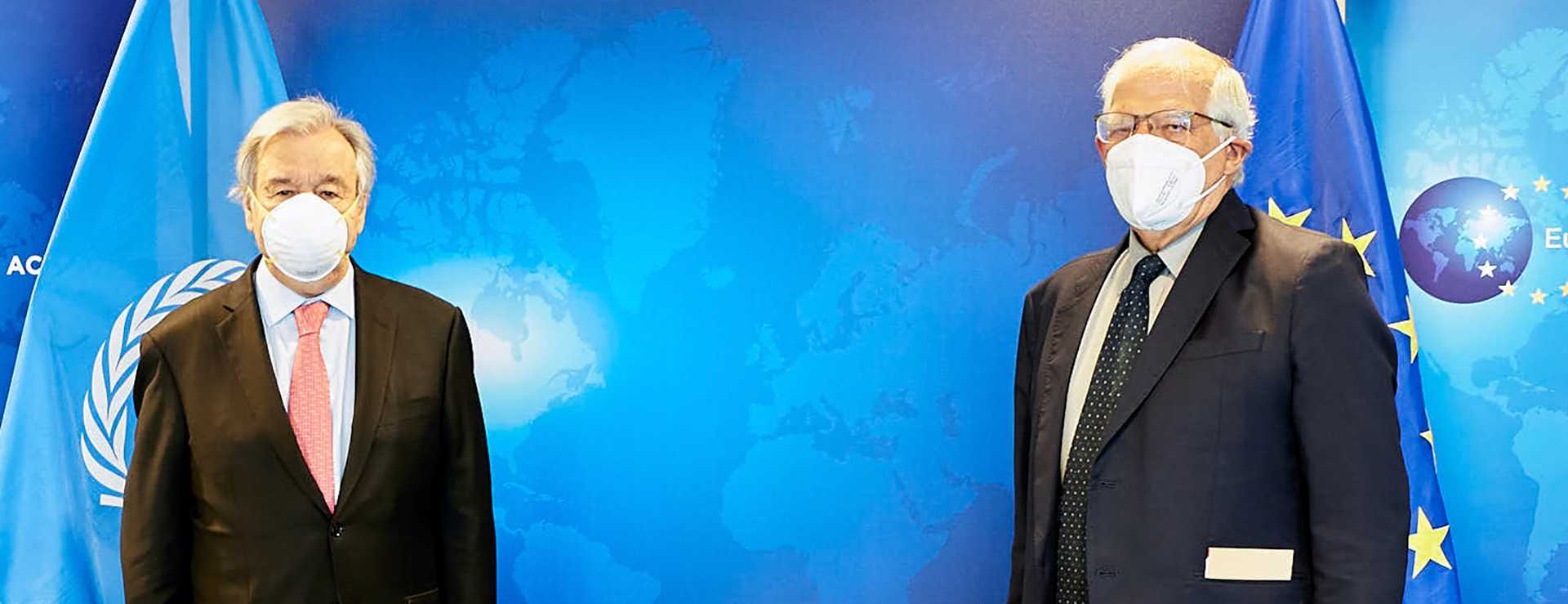The EU and the United Nations Machinery I

This video gives an overview of the EU’s role supporting the UN Disarmament Machinery.
The European Union has always actively and fully supported the work of the United Nations, defined as “the cornerstone of multilateralism, the bridge to a better humanity, a better world”, in the words of the former President of the European Commission Jean-Claude Juncker.
The EU has also repeatedly expressed its support towards the work of the United Nations Disarmament Machinery.
In a statement at the United Nations General Assembly First Committee, in October 2019, the EU reiterated its support for the three mutually reinforcing fora of the Disarmament Machinery: the UN General Assembly First Committee, the Conference on Disarmament and the UN Disarmament Commission – as we have studied in chapter 2.
In the same statement, the EU also stressed the importance of continued financial support to the machinery and its various instruments, without which it could not otherwise properly function to achieve the global goal of international peace and security.
In the next slide, Eran Nagan from the European External Action Services will provide some brief comments on the work of the European Union in this field.
The EU and the United Nations Machinery II
In this video, Eran Nagan from the European External Action Service answers two questions:
- What is the EU’s role in the UN disarmament system?
- How can the EU contribute to multilateral arms control?
Hi! My name is Eran Nagan from the European External Action Service. I’m the Chair of COARM, the Working Group for Conventional Arms Exports.
What is the EU’s role in the UN disarmament system?
The EU is working towards a renewed rules-based multilateralism in order to make it fit for the 21st century – a model of multilateralism that serves good governance as well as EU and global interests and values. Cross-border challenges – like disarmament, non-proliferation – can only be addressed if countries work together. The United Nations system is the framework through which the international community can create greater security and stability for all. The EU is an extremely active player in the multilateral UN system. Together with member states, we operate as one delivering with a single voice. That’s how we make the most out of our political and economic leverage. At the Council Working Party on Non-Proliferation and Arms Exports in Brussels, we prepare EU positions with member states. The EU Permanent Missions to the UN in New York, Geneva, and Vienna, also coordinate on non-proliferation and disarmament matters. This enables the EU to express common decisions at UN meetings, also to engage in negotiations on resolutions and to implement our shared arms control interests in the treaty bodies.
How can the EU contribute to multilateral arms control?
Now that the international arms control architecture is under severe pressure from geopolitical tensions, the EU will do more than ever to preserve and to strengthen it. We promote the full implementation of arms control treaties and lobby states to fulfil their obligations to prevent the use and spread of certain weapons. Our support to the Mine Ban Treaty and to the Biological Weapons Convention, guarantees a world without biological weapons and – in the future – also without landmines. We will join forces with our partners to keep arms control regimes fit for purpose in light of new technological developments. The Treaty on the NonProliferation of Nuclear Weapons is a successful essential multilateral instrument that has prevented a global nuclear arms race for half a century. The EU supports its faithful implementation by all. Our assistance to the Organisation for the Prohibition of Chemical Weapons will continue to ensure that the ban on chemical weapons is upheld and that those using chemical weapons are held to account. The prevention of an arms race in outer space has the EU’s special attention. We also support establishing a programme of action to advance responsible state behaviour in cyberspace. And the EU is helping to re-vitalize the Conference on Disarmament in Geneva, so that it will again serve as the principal negotiation forum on disarmament. Through the budget for common foreign security policy, the EU supports the UN system’s institutions and their treaty bodies for disarmament, including for instance the OPCW, the International Atomic Energy Agency, CTBTO, UNODA, UNIDIR …
Our support amounts to over 200 million euros since the year 2004. It is part of our commitment to be a long-standing, reliable ally of the UN system, while discussing the changes these institutions need to make to meet modern challenges. This makes the EU-UNbond a truly strategic relationship. Finally, the EU sponsors ten actions of the UN secretarygeneral’s agenda for disarmament. These actions address nuclear, biological, chemical weapons, conventional arms, the participation of young people and women and much more.
In short: The EU promotes the reform of global governance. We are helping to create a multilateral system that makes effective, timely decisions. A system that is more inclusive, where governments, citizens and industries collaborate to build a safer world.